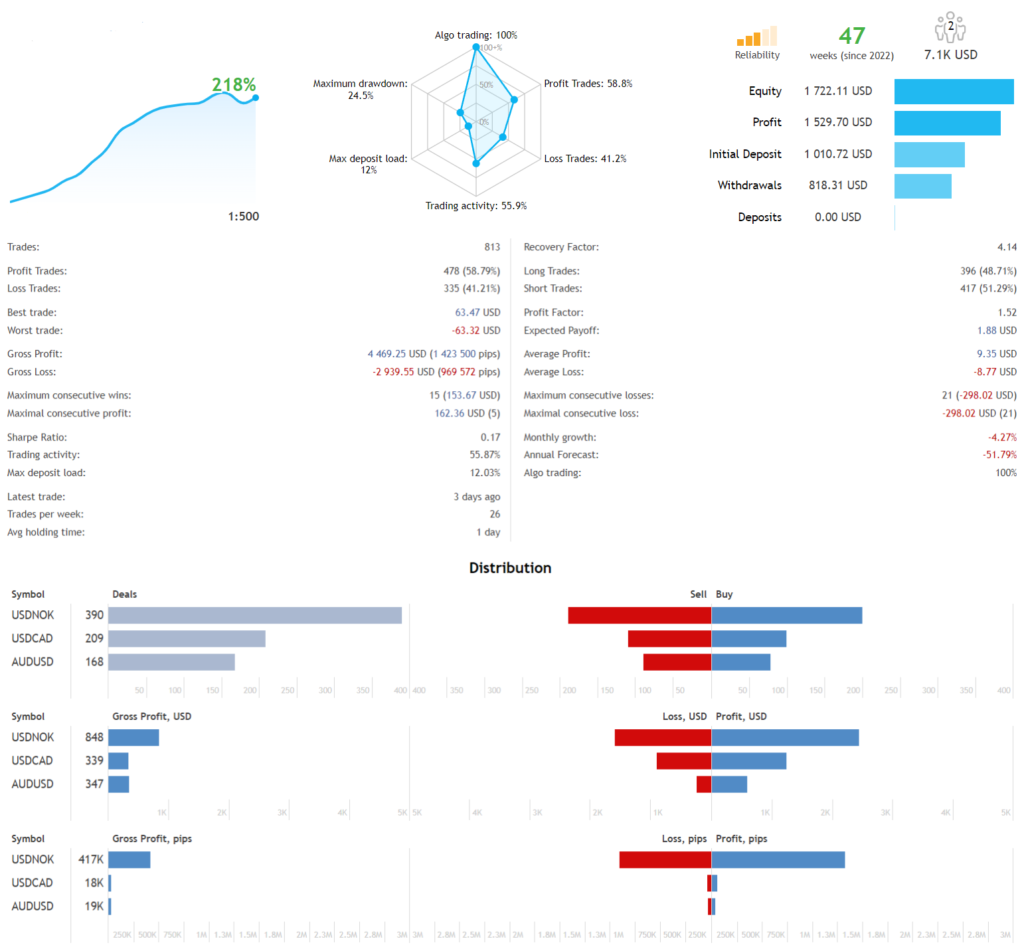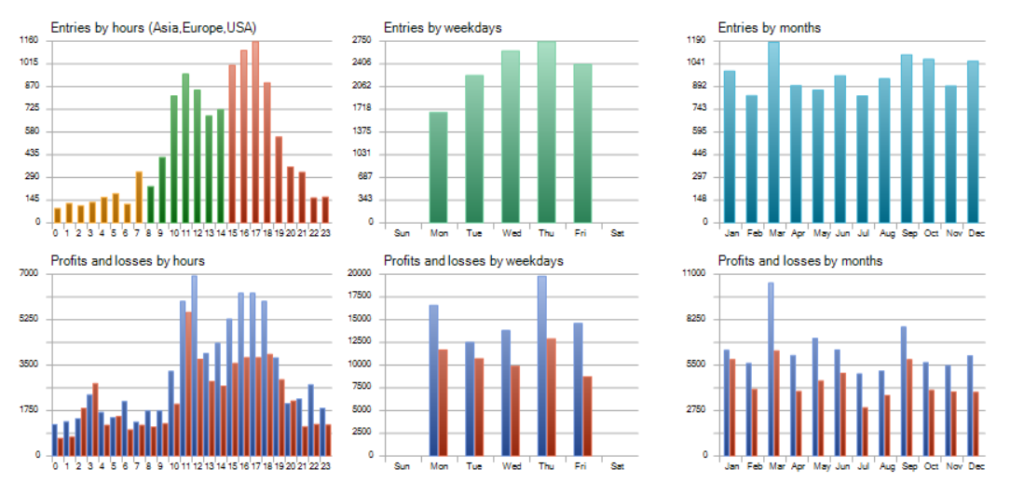Smart Hedge EA is a hedge robot that is FREE to download. This robot’s operation is based on hedge and grid strategies. The Forex market is characterized by high volatility, presenting traders with numerous challenges and opportunities. In response to this volatility, traders have increasingly turned to hedging as a strategic approach to minimize losses and optimize profits. Hedging in the forex context is akin to an insurance policy designed to safeguard investments against market fluctuations.
Panda Hedging EA is a fusion of hedging and grid trading algorithms, providing a secure trading platform with enhanced deposit protection. Unlike strategies that rely on lot multiplication (Martingale), Hedge Robot maintains a consistent approach to order size, opening additional orders at a fixed lot size. Even though it doesn’t use Martinalge, the Grid strategy can still be risky.
Key Features of Smart Hedge EA
- Automated Trading Tactics: Smart Hedge EA employs a unique combination of hedging and grid trading strategies. This approach allows for more structured and strategic trade placements, potentially increasing the chances of profitability.
- Deposit Protection System: The system is designed with a high level of deposit protection. This feature is crucial in the unpredictable forex market, where sudden market shifts can lead to significant losses.
- Grid Method: Hedge Robot opens all additional orders with the same fixed lot size to avoid the risks associated with lot multiplication strategies like Martingale. This method offers a more stable and predictable trading environment.
- Author’s Algorithm for Order Placement: If the market moves against an open order, Smart Hedge EA activates its proprietary algorithm to open additional orders, up to a maximum of ten for each instrument in the pair.
- Selected Currency Pairs: The EA specializes in hedging on specific currency pairs like USDCAD/USDNOK and AUDUSD/USDNOK. This focus allows for a more tailored and effective trading strategy for these particular pairings.
Please test in a demo account first for at least a week. Also, please familiarize yourself with and understand how Panda Hedging EA works, then only use it in a real account.
Recommendations for this Hedge Robot
- Minimum account balance of 1000-1500USD,
- USDCAD/USDNOK 0.02 lots.
- AUDUSD/USDNOK 0.01 lots.
- This EA is a one-chart setup, so it only needs to be attached to one pair(preferably USDCAD). It will trade on all pairs described on the input parameter.
- Work Best on M1.
- MT4 cannot perform multi-currency backtests.
- This Hedge Robot should work on VPS continuously to reach stable results. So we recommend running Panda Hedging EA on a reliable VPS (Reliable and Trusted FOREX VPS – MyfxVPS)
- Low Spread ECN account is also recommended (Find the Perfect Broker For You Here)
Download a Collection of Indicators, Courses, and EA for FREE




- Read More Aggressive Forex EA FREE Download
Conclusion of Panda Hedging
Panda Hedging EA combines hedging with a grid trading algorithm and avoids the pitfalls of lot multiplication. Its focus on specific currency pairs and commitment to deposit protection make it an attractive option for traders looking to navigate the forex market’s volatility with a more structured and secure trading system. As with any trading strategy, it’s essential for traders to understand the mechanisms and risks involved thoroughly and consider whether it aligns with their trading objectives and risk tolerance.







Good afternoon. I need a robot speedrun 5.0
Thanks Admin please get the Quantix indicator
this EA does not take profits. Any suggestion on how to solve it?
What do you mean by not making a profit? Can you explain it?
Hola, este bot No abre ninguna operación.
Update EA Vold..?
please update Swing Gold Forex EA for us, thanks in advance admin
So how do I download the SMART HEDGE ROBOT ? I dont see any download link ! pls help !!
Got it 🙂
Hello I downloaded the smart hedger bot but it’s not executing trades
zvakazodii?